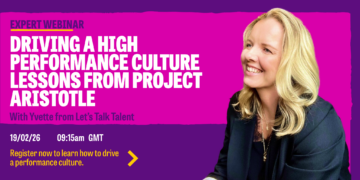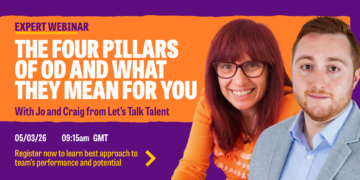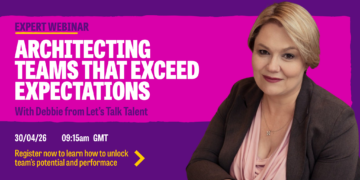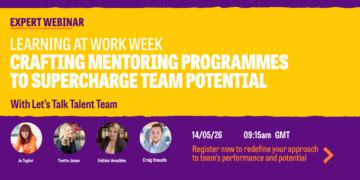Let's Talk Talent » Courses
Upcoming Courses
Webinar
|
February 19, 2026 9:15 am
Culture exists whether it is managed or not, and it will form its own shape without intervention. In today’s competitive landscape, the business case for high-performance cultures is solid. Find out how and why in this webinar.
Webinar
|
March 5, 2026 9:15 am
Join us on this webinar to explore the pillars of Organisational Design in a new light, and set your teams up for sustained success.
Webinar
|
March 19, 2026 9:15 am
Do you have the right people, in the right roles, with the right skills, doing the right things? If the answer is no to any of these questions, this webinar is one you can't afford to miss.
Webinar
|
April 2, 2026 9:15 am
What do we mean by the word culture and why does it matter?
In this webinar we will look at what can trigger the need for a culture audit, the approach you might take through a live example and the outputs that you can expect from it.
Webinar
|
April 30, 2026 9:15 am
Join us for an exclusive panel discussion exploring the science, art and humanity of building truly exceptional teams.
Webinar
|
May 14, 2026 9:15 am
In this webinar, we'll address the common pitfalls that undermine mentoring initiatives and provide a structured methodology for fostering meaningful connections.
Previous Courses
Webinar - February 5, 2026 9:15 am -
The Truths And Lies About Unlocking Your Team’s Performance & Potential
Webinar - January 22, 2026 9:15 am -
How Leaders Can Link Purpose to Performance
Webinar - January 8, 2026 9:15 am -
Performance Reviews Are Dead?
Webinar - December 4, 2025 9:15 am -
Reset, Refocus, Reimagine Your L&D Strategy for 2026
Webinar - November 20, 2025 9:15 am -
Future Skills for Future Teams
Webinar - November 6, 2025 9:15 am -
The Leadership Blind Spots That Undermine Team Performance
Webinar - October 30, 2025 9:15 am -
The Wrap-Up: 10 Years of Talent – What’s Next for You?
Webinar - October 9, 2025 9:15 am -
Lead Forward – Redefining management in the age of change
Webinar - September 4, 2025 9:15 am -
Strategic HR in 2025: Aligning People with Performance
Webinar - August 28, 2025 9:15 am -
HR Horizon 2026: AI, Agility, and the Art of Human-Centered Leadership
Webinar - July 31, 2025 9:15 am -
Assessment for Impact: Moving Beyond the Tick-Box
Webinar - July 10, 2025 9:15 am -
Coaching That Counts: The Strategic Value of Leadership Coaching
Webinar - June 12, 2025 9:15 am -
HR Business Partnering In Practice – Webinar
Webinar - May 15, 2025 9:15 am -
Learning At Work Week – Your Mid-Year Trends Pulse-Check
Webinar - May 13, 2025 9:15 am -
Learning At Work Week – Building Career Pathways That Actually Work
Webinar - May 12, 2025 9:15 am -
Learning At Work Week – Boost Yourself With Networking Career Sprints
Webinar - April 24, 2025 9:15 am -
People First, Results Focused: Aligning Performance With Purpose
Webinar - April 3, 2025 9:15 am -
Supercharge Your Organisation’s Learning At Work Week: From Plan To Impact
Webinar - March 27, 2025 9:15 am -
Beyond the Training Room: Reinventing L&D for Today’s Workplace – Panel Webinar
Webinar - March 13, 2025 9:15 am -
Stretch Every Penny: Maximising Your L&D Budget, Without Compromising On Quality or Impact – Webinar





